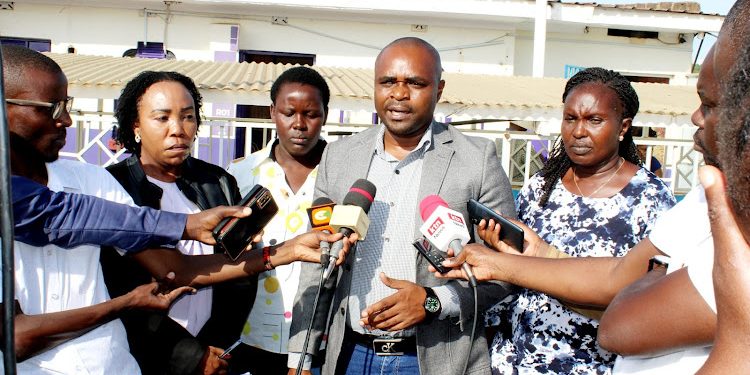The National Assembly’s Committee on Health is on a mission to investigate various hospitals believed to have colluded with rogue officials to embezzle funds from the National Health Insurance Fund (NHIF). The probe into suspected financial impropriety in health facilities is ongoing today in Embu and Meru counties.
The MPs led by committee vice chairperson Patrick Munene on Wednesday visited some facilities in Murang’a and Kirinyaga. Other members present included Mary Maingi (Mwea), Pauline Lenguris (Samburu) and Cynthia Muge (Nandi).
At a school dispensary in Murang’a, the committee was told that the facility, officially registered with the Medical Practitioners and Dentists Board, serves a student population of 2,400 and about 150 staff members. The significant increase in claims, MPs heard, was attributed to a fee revision from Sh500 to Sh1, 000 even as the school denied involvement in fraudulent claims.
The MPs also visited two hospitals in Mwea, Kirinyaga where the team questioned the hospitals’ proprietor about the feasibility of conducting 22 surgeries in a single day. Munene also raised concerns about the swift acquisition of pre-authorizations. It was noted that the facilities did not meet all the requirements for a level four hospital, prompting questions about the licensing process by the Medical Practitioners and Dentists Board. The proprietor, however, denied any collusion or illegitimate claims but mentioned having to lay off 98 employees due to unpaid money by the NHIF.
The committee assured fairness and justice, emphasizing the committee’s commitment to representing the people’s interests. Ministry of Health confirmed on January 5 that the national insurer lost Sh.171 million due to sham activities following an audit that was conducted in 27 health facilities between the month of January and December 2023.
Health Cabinet Secretary Susan Nakhumicha said the facilities were among 67 hospitals that were audited between January and December 2023.
“Extrapolating this to the total population of 8,886 hospitals, it is estimated that approximately 3,440 might have been engaged in fraudulent activities, potentially exceeding Sh.20 billion in losses from about 40 per cent fraudulent hospitals. Luckily 60 per cent carry out clean business,” she stated.
In a statement, the CS noted that the 27 facilities have been making fraudulent claims from the National Health Insurance Fund (NHIF), which was recently replaced by the Social Health Authority. “The widespread nature of these alleged fraudulent cases is deeply concerning. The list of implicated facilities includes instances of induced demand, particularly targeting vulnerable citizens, notably older individuals,” she stated. She also said that the alleged fraud occurred in facilities in Nairobi, Meru, Nyahururu, Muranga, Kerugoya, Makueni, Tharaka Nithi, Subukia, Nanyuki, Bungoma, Chuka, and Machakos.
“Patients have been enticed into unnecessary medical procedures, exploiting their vulnerabilities,” the CS stated.
She said instances of induced sickness have been uncovered, wherein facilities deceitfully activate dormant accounts of members, financing medically unwarranted treatments.
She added that fictitious records, manufactured claims, and deceptive practices, such as falsely indicating members undergoing major surgeries while actively at work, have all contributed to allegedly defrauding the Fund. “Disturbingly, some hospitals have targeted groups of security guards from licensed security firms, financially inducing them to provide biometrics for alleged fraudulent purposes,” she stated.
The CS further said anomalies were also identified, including facilities conducting an exceptionally high number of eye surgeries in a day, ranging from 10 to 22, in facilities with a capacity of only two per day while lacking adequate theatre capacity.
“Such discrepancies raise significant doubts about the legitimacy of claims and the resources available at these facilities,” Nakhumicha explained.
The CS noted that Under the EduAfya cover, healthcare facilities have been enticing healthy students, providing food incentives for their biometrics that result in high financial losses.

